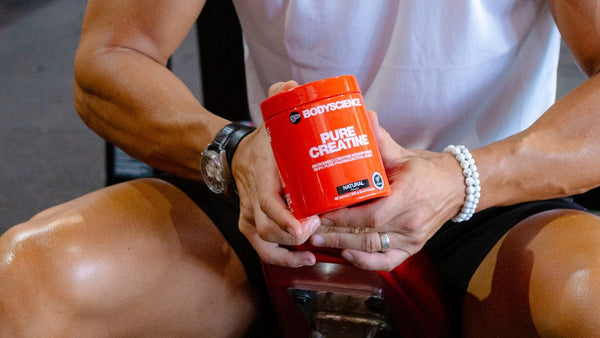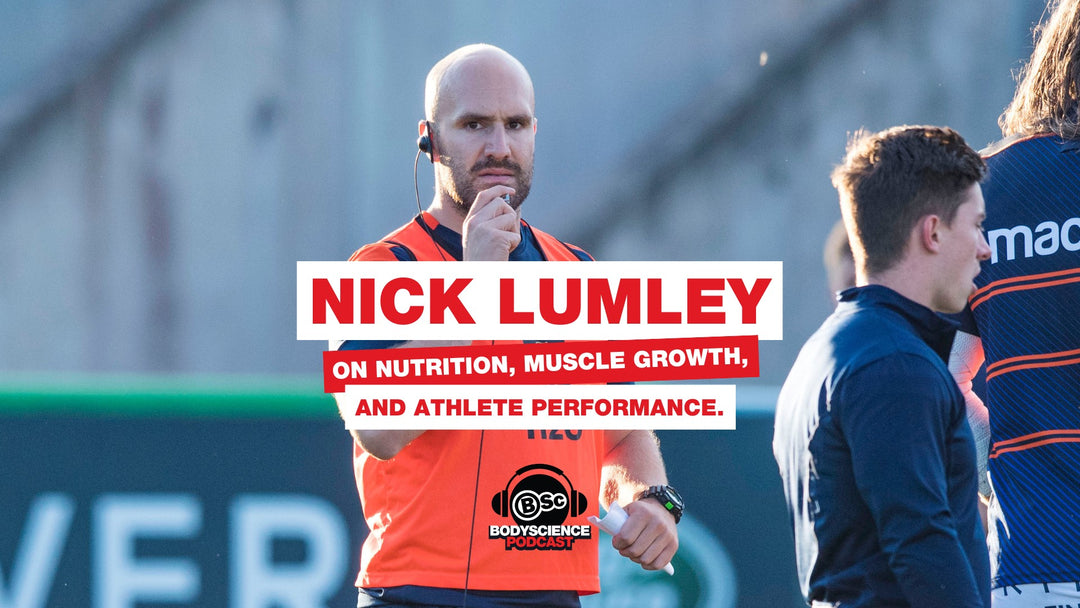Creatine is a popular supplement taking the fitness scene by storm. You can find it on the shelves of almost every health store, and many praise its remarkable benefits.
Although creatine has become somewhat of a buzz product among gym junkies and wellness enthusiasts, if you're unacquainted with its positive effects, you might find yourself asking, "What does creatine do?", and further, "Is creatine right for me?"
Let's look at the beneficial effects of creatine supplementation, so you can gauge if it’s worth adding it to your health and fitness regimen.
What is Creatine?

Creatine is like your body's secret energy booster, formed of three amino acids found naturally in our muscles.
Think of it like a right-hand man where muscle recovery is concerned—especially for skeletal muscles. It's made in the liver and kidneys, but you can also get it from high-protein foods like red meat and fish, or by taking creatine supplements.
Now, here's the cool part:
Creatine helps the body make something called ATP (adenosine triphosphate), which is like super fuel for your muscles. So, when you have more creatine, it's like giving your muscles a turbo energy boost!
This can improve athletic performance, making you feel more energetic and ready to tackle daily workouts.
What Does Creatine Do in the Body?

-
Boosts Energy:Creatine is important for our body's energy production system. When you engage in short bursts of high-intensity activities such as lifting weights or sprinting, your body relies on ATP for energy sources.
However, ATP stores deplete rapidly. Fortunately, our muscles store creatine phosphate, which can donate a phosphate to the depleted ADP (adenosine diphosphate). This quickly regenerates ATP.
The effects of oral creatine supplementation can increase your muscles' creatine phosphate stores, meaning there’ll be a quicker regeneration of ATP.
Supplementation can enhance your exercise performance for those HIIT (High-Intesity-Interval-Training) sessions that require short, intense bursts of energy.
-
Improves Cognitive Function and Muscle Mass:
In addition to its role in energy production, some studies suggest that creatine may help increase muscle mass, improve cognitive function, and benefit certain conditions like muscular dystrophy.
With these potential benefits, it’s clear why many believe creatine is worth it.
-
Increases Lean Body Mass :Creatine makes your muscles hang onto more water, making them look bigger and more pumped (as long as you stay hydrated, of course).
Creatine also boosts your internal energy sources, improving muscular performance and letting you push harder and lift heavier weights at the gym. That extra effort translates into muscle growth and some serious gains.
Adding Creatine to Your Diet
The body naturally produces creatine, and we can get it from foods like red meat and fish, but these amounts might not be enough to really boost our creatine stores and enhance athletic performance.
For those who crave more and refuse to settle, oral creatine supplements are an ideal solution.
Do's and Don'ts of Dosing Creatine
A common approach to oral creatine supplementation involves a "loading dose" followed by a "maintenance phase".
During the loading dose phase, one might take 20g of creatine daily for 2-5 days. After this, the maintenance phase involves a daily intake of 2-5g.
However, some choose to skip the loading dose phase of supplementation with creatine and consume 2-5g daily from the get-go. Both approaches seem effective, but the loading phase might lead to quicker creatine absorption.
It’s important to remember that you should always consult with a healthcare professional before starting any supplementation to avoid adverse effects. It’s important to follow the recommended dosage of the product. This is typically on the back of the packaging in the ‘Nutritional Information’.
When Should You Take Creatine?

So, when should you take creatine? This question has sparked debate. Some argue that the efficacy of creatine supplementation is higher post-workout, while others believe taking it pre-workout is better.
However, recent research suggests that the specific timing might not be as crucial as once thought. Regardless of the forms of creatine you consume, the key is consistency.
Whether you choose to take creatine before or after your workout or even on non-workout days, daily intake will help you maintain elevated muscle creatine levels.
That said, combining creatine with a source of carbohydrates might enhance its uptake into the muscles.
Will Taking Creatine Cause Weight Gain?
Taking creatine as a dietary supplement won't necessarily lead to weight gain.
Doctors have suggested that concerns about weight gain stem from outdated bodybuilding methods involving high doses of creatine (like 5g, four times daily) paired with carbs.
This combination can increase cellular hydration (i.e., water retention), which might lead to temporary body weight gain and bloating. However, such side effects are linked to exceeding the recommended dosage of oral forms of creatine.
Who Should Take Creatine?

Who stands to see beneficial effects from oral creatine supplementation?
Athletes, bodybuilders, and those involved in high-intensity, short-duration activities may find it’s worth adding forms of creatine to their routine. Regardless of gender and fitness level, creatine can enhance muscle performance, support muscle growth, and aid in swift recovery.
Even if you don’t work out, creatine supplements can be extremely beneficial. Whether you’re taking your dog for a walk or simply heading up and down the stairs— creatine can give you an added energy boost for any day-to-day movement and improve brain function.
Emerging research also suggests that creatine may support cognitive performance. This could be helpful for vegans, vegetarians, or others who have limited dietary creatine intake affecting their mental clarity.
But, like all supplements, creatine isn't one-size-fits-all, and it’s essential to consult with a healthcare professional before introducing it into your routine to prevent adverse effects. They can help you decide if a creatine supplement is worth it for you.
Do I Really Need Creatine? Is It Worth It?
Overall, the beneficial effects of oral creatine supplementation can be ideal for optimising muscular performance in workouts and post-workout recovery.
If used correctly, the benefits of creatine are absolutely worth it for anyone looking to enhance performance, potentially boost muscle mass, and possibly improve cognitive function.
Boost Your Performance With Creatine
Now that we've answered your initial query and you’re no longer sitting around wondering, “What does creatine do?"—will you give it a try?
Our 99.9% pharmaceutical-grade creatine supplement comes in a naturally flavoured powder, which makes it easy to add to your pre and post-workout shake or snack. It’s also HASTA Certified, banned substance-free, vegan friendly, with no added sugar or fillers, so you’re getting all the good stuff and none of the nasties.
Check out the wide range of creatine products at BSc today.
















